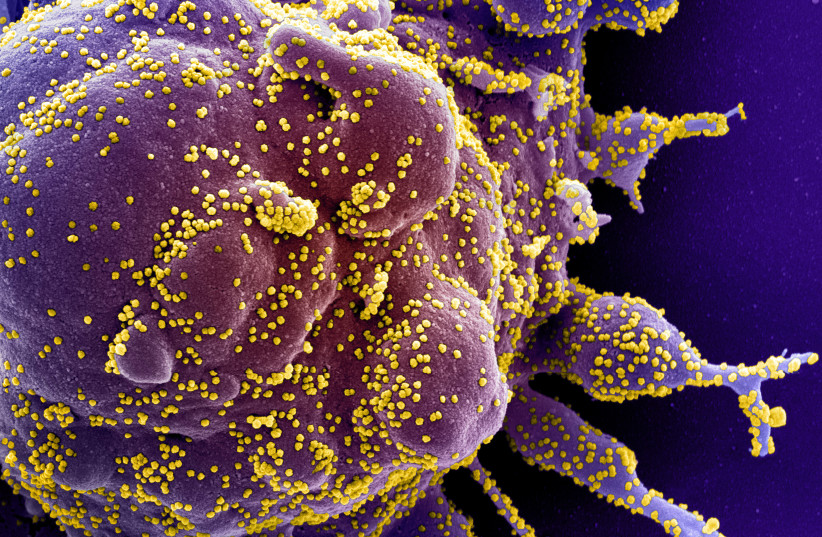As COVID-19 cases surge and experts predict that millions of Israelis might become infected in a few weeks, catching the virus seems, if not inevitable, at least very likely for most people.
As everyone tries to find a balance between trying to avoid getting infected – which is still what is highly recommended by the authorities and medical professionals – but also continuing to live our lives, the question is: Should we be worried?
While the data on the new Omicron variant are still not complete, once again a major factor in answering that question is whether or not people have been vaccinated, two physicians said.
“I believe that people who are triple vaccinated and in relatively good health are quite safe,” said Prof. Dror Mevorach, a senior physician from the Hadassah-Hebrew University Medical Center. “Of course, they should still be careful about wearing a mask, and avoid mass gatherings, but they are in a good situation.”
According to Mevorach, the principle is also valid for elderly people, as long as they do not have underlying conditions that compromise their immune system.

“And of course, those who have not received the booster yet should go and get one. I believe it is the best defense,” he added.
The largest group in the country that has not been vaccinated is children, said Prof. Itzik Levy, head of the Infectious Diseases Unit at the Schneider Children’s Medical Center.
“We know that the pediatric population is the least vaccinated in the country so they are more prone to be infected by Omicron,” he said. “On the other hand, we know that the variant is less severe than others and therefore there will be less hospitalized children.”
Levy said there is not enough information yet to understand if the children who are too young to be vaccinated are at greater risk.
“Those who are zero to four [years old] and cannot be vaccinated, should be kept protected,” noted Mevorach. “Usually when they catch the disease it is pretty mild, but it is still important to be careful.”
However, the physician also acknowledged that with such young children, especially if they attend day care, there might not be a way to avoid exposure.
“Parents have to be prepared for it and manage the situation as well as possible,” he said. “This means that they should be ready to keep the children at home if they show symptoms and to keep them monitored through at-home tests.”
Levy also stressed that in order to help protect babies and toddlers, all adults and older children surrounding them should be vaccinated.
“This is my recommendation to parents,” he said.
Both physicians stressed that all the children over the age of five should be inoculated as soon as possible.
At the moment, only a minority of Israel’s 125 serious patients are infected with Omicron. The majority are sick with Delta. While part of the reason is likely due to the delay of serious morbidity compared to general morbidity, Mevorach also noted that the variant itself appears to be less likely to cause serious symptoms.
“If we compare the symptoms we are seeing now with those we witnessed with Alpha or Delta, there is less severe lung disease, as it is confirmed by lab tests that show a lower penetration of the virus in the lungs,” he said. “However, we do have to remember that some patients will turn severe or critical. Most of them will likely be unvaccinated people or vaccinated people with serious underlying conditions.”
